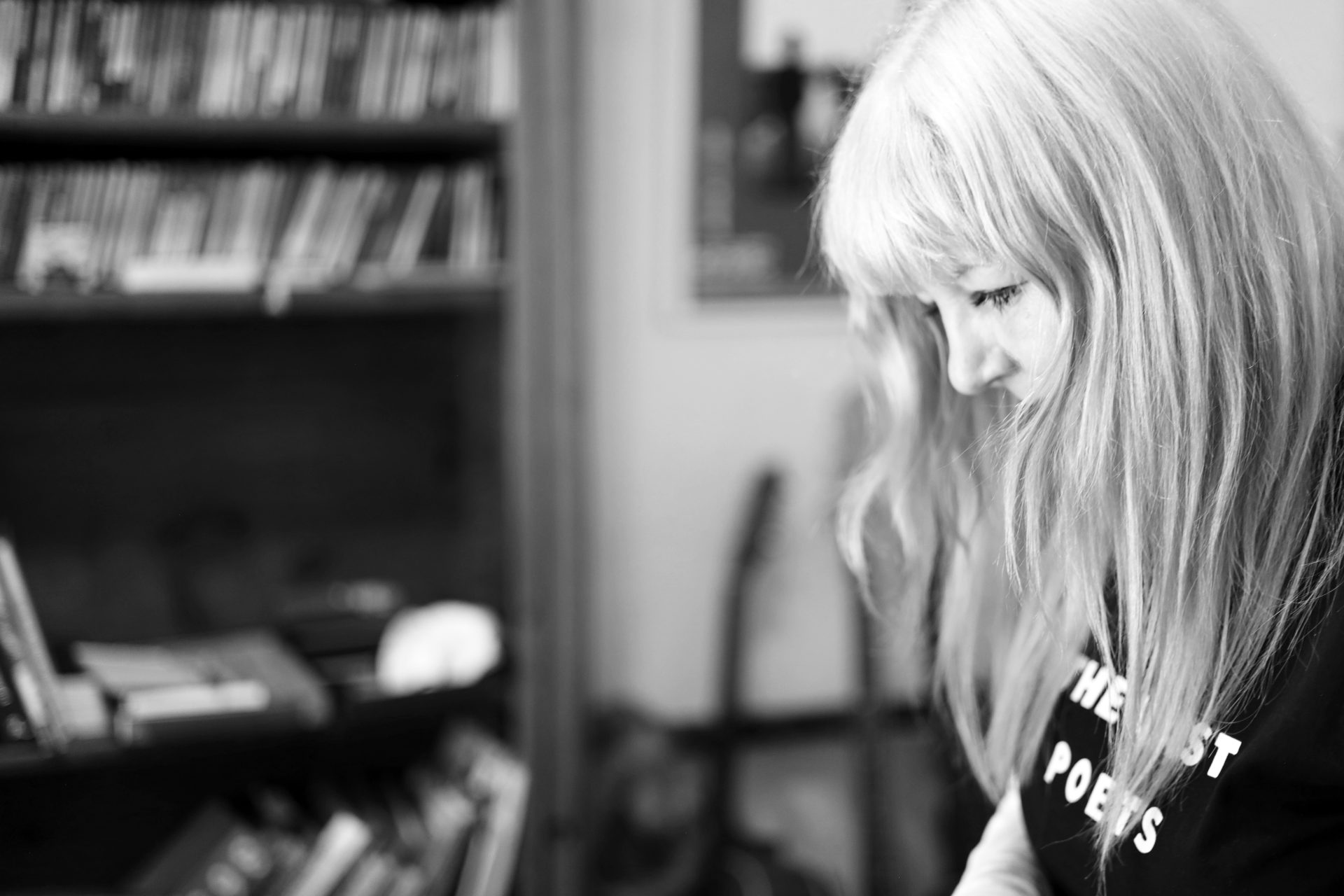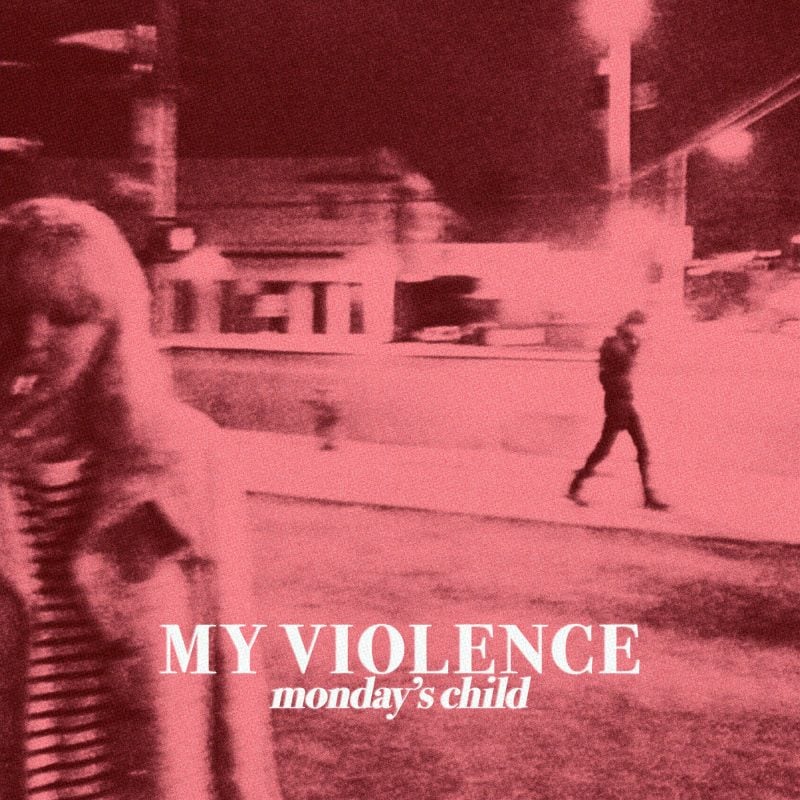There are moments when a children’s tale rises into the realm of anthem. Robert Munsch’s The Paper Bag Princess is one of them. In this classic story, Princess Elizabeth loses her castle, her clothes, and the comforts of privilege, but never her power. Clad only in a paper bag, she outsmarts a dragon and rescues Prince Ronald with wit and courage. When he criticizes her appearance instead of offering gratitude, she turns away, choosing herself over his approval. This is no tale of waiting – it is one of action. Elizabeth proves that girls need not be ornamental or rescued; they can be their own heroes, walking proudly into independence.
Silvia Ryder has absorbed that spirit. Once half of Sugarplum Fairies, she now steps out alone under the name My Violence. Gone is the cushioning haze of her earlier project; here, Ryder channels sharpened minimalism, stripping the canvas to piano, voice, and silence. The result is unflinching.
Her sophomore album, Monday’s Child, takes its cue from a 19th-century nursery rhyme used to sketch the fate of the week’s newborns. Fatalism lingers at the edges of the record, but Ryder treats it less as prophecy than provocation: what does it mean to inherit doom, or promise, simply because of when one is born? That unease seeps through every measure.
The album’s lead single, Paper Bag Princess, functions as a thesis: a melancholic piano ballad that captures the record’s somber beauty. Ryder’s piano strikes are stark, each note weighted with deliberation. Against this skeletal frame, her voice trembles yet steadies, plaintive but unbowed. She sings as though seated alone in a dim hall, unafraid to let silence breathe between phrases. There are no orchestral swells, no grand percussive gestures; only the quiet insistence of a woman calmly, bravely telling her truth. Ryder turns the children’s fable into adult revelation: the paper bag is a garment of resilience. The heroine’s choice to walk away becomes a meditation on leaving behind roles that diminish and squash our souls.
Paper Bag Princess is not a relic of nostalgia..it is a mirror, showing what remains when the castle burns, the clothes fall away, and expectation collapses. In that stripped space, strength speaks. My Violence dares to let it echo.
Watch the visualizer below:
Paper Bag Princess is out now via Starfish Records. Pre-save Monday’s Child on Spotify here.
Across the forthcoming album, Ryder orbits influences both spectral and grounded. References to Nico and Mazzy Star may serve as touchstones, but Ryder is less about emulation than invocation. Think Maria Somerville’s hushed intensity, Primitive Heart’s stark poetics, or the spectral spellwork of Zola Jesus, yet always refracted through Ryder’s own lived history. Silvia Ryder spoke with Post-Punk.com about the album’s genesis, meaning to her, and where she plans to take My Violence.
The album title “Monday’s Child” draws from the 19th-century nursery rhyme—how did that concept shape the thematic arc of the record?
The “Monday’s Child” nursery rhyme (which is based on a tradition of fortune telling by the day of birth) inspired me to create both fictional and non-fictional protagonists, e.g. Turnstile Johnny and Paper Bag Princess. Incidentally, there is a “Monday’s Child” interlude which incorporates Omnichord and 1950’s toy piano arrangements.
“Paper Bag Princess” references a banned children’s book from the 1980s—what drew you to that story, and how did it shape the song’s message?
The Paper Bag Princess book by Robert Munsch is rather revolutionary in regards to children’s books because it challenges traditional fairy tales tropes to raise questions about gender roles and identity. It’s “the princess saves the prince from the dragon while dressed in a paper bag” instead of the other way around.
As My Violence, your sound explores darker, more cinematic territory than your work with Sugarplum Fairies—how has adopting this new identity changed the way you express yourself artistically?
My “new” identity is a culmination of my personal and creative split from my previous songwriting partner/husband. I ventured out into unknown territories; exploring songwriting in addition to just being a lyricist. Sugarplum Fairies was pretty pop. My Violence is more cinematic. My son Marlon Rabenreither aka Gold Star helped with production and mixing.
Follow My Violence:
















 Or via:
Or via: